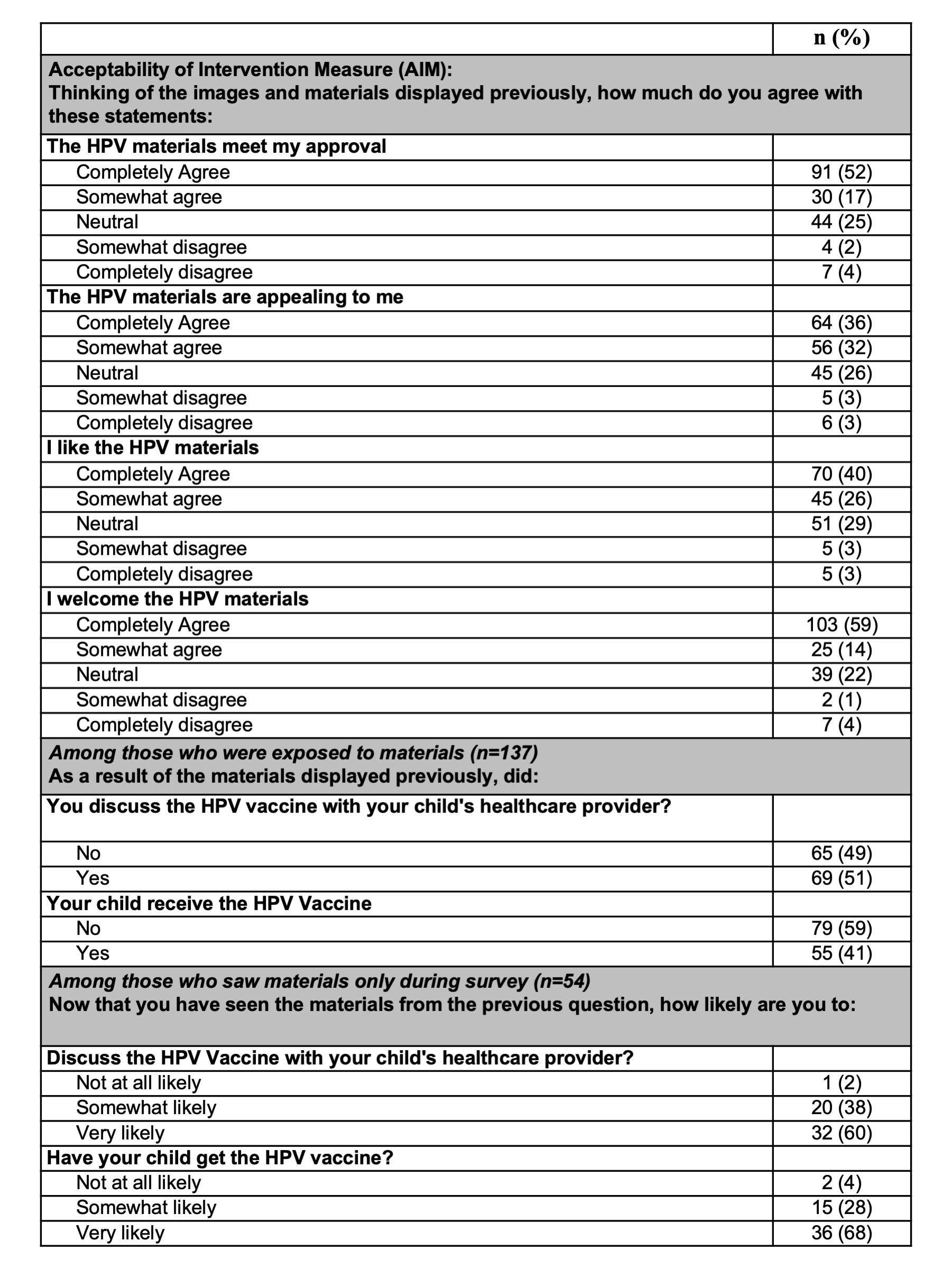Immunizations/Delivery
Immunizations/Delivery 2
432 - Co-Created HPV Vaccine Promotion Materials for Pediatric Practices: A Mixed Methods Evaluation of Parents’ Perspectives
Publication Number: 432.323

Sarah E. Brewer, PhD MPA (she/her/hers)
Assistant Professor
University of Colorado School of Medicine
Aurora, Colorado, United States
Presenting Author(s)
Background:
HPV vaccines can prevent cancer yet uptake remains low despite substantial efforts. Community-engaged approaches to translating medical evidence and co-creating interventions show some promise in addressing barriers to uptake. However, the parent acceptability of parent-provider co-created materials for use in pediatric settings has not been evaluated.
Objective:
To evaluate parent acceptability, perceptions, and perceived impact of parent-provider collaborative intervention campaigns for the promotion of HPV vaccine.
Design/Methods: Parents of children ages 9-13 with no prior HPV vaccine were asked to complete a brief survey after any visit at participating pediatric practices (n=6) in Colorado. Surveys assessed exposure to the materials [intervention], acceptability of the intervention using the 4-item Acceptability of Intervention Measure (AIM), and perceived impact of the intervention message. Among parents who had a vaccine eligible child and were exposed to the materials we conducted semi-structured interviews to explore perceptions of the materials and impacts on their HPV vaccine knowledge and attitudes.
Results:
We administered a total of 212 parent surveys and 19 semi-structured parent interviews. 72% of parents reported they encountered the co-created materials before or during their pediatric visit; over 65% of parents reported agreement with the acceptability measures. Among those who reported seeing the materials, 52% reported they discussed the HPV vaccine with a provider because of the materials. 41% reported their teen received the vaccine because of the materials. [Table 1]
In qualitative interviews, parents reported that they found the materials “eye catching,” with good ethnic representation, simple, and “would certainly help start a conversation” with their provider. They were also perceived as informative and made parents aware of the different types of cancers related to HPV. Parents described the materials “it just seemed very relatable; it wasn't like just all strictly doctors”.
Conclusion(s):
Parent-provider co-created materials developed in partnership between provider, staff, parents, and patients were acceptable and welcomed by parents in pediatric practices. In addition, self-reported perceptions of the materials indicate they may improve likelihood of discussing and receiving the HPV vaccine during pediatric visits.

